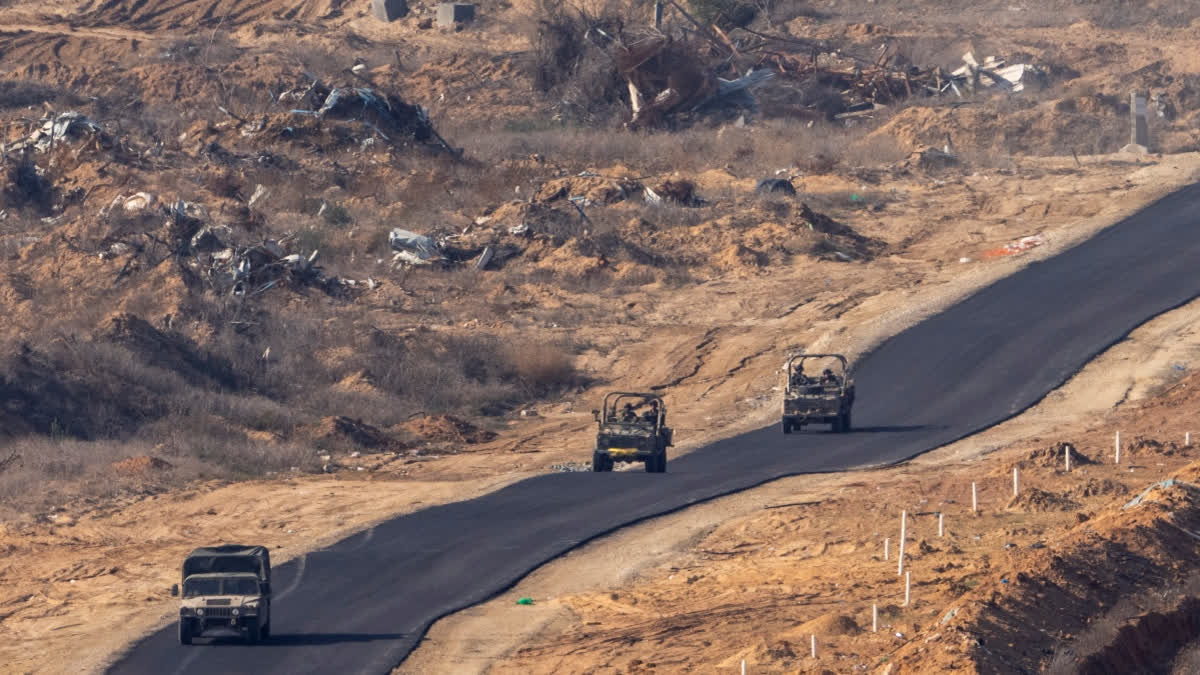Cairo: If the Israel-Hamas ceasefire deal goes according to the current draft, then fighting will stop in Gaza for 42 days, and dozens of Israeli hostages and hundreds of Palestinian prisoners will be freed. In this first phase Israeli troops will pull back to the edges of Gaza, and many Palestinians will be able to return to what remains of their homes as stepped-up aid flows in.
The question is if the ceasefire will survive beyond that first phase.
That will depend on even more negotiations meant to begin within weeks. In those talks, Israel, Hamas, and the U.S., Egyptian and Qatari mediators will have to tackle the tough issue of how Gaza will be governed, with Israel demanding the elimination of Hamas.
Without a deal within those 42 days to begin the second phase, Israel could resume its campaign in Gaza to destroy Hamas – even as dozens of hostages remain in the militants' hands.
Hamas has agreed to a draft of the ceasefire deal, two officials confirmed, but Israeli officials say details are still being worked out, meaning some terms could change, or the whole deal could even fall through. Here is a look at the plan and potential pitfalls in the draft seen by the Associated Press.
Swapping hostages for imprisoned Palestinians
During the first phase, Hamas is to release 33 hostages in exchange for the freeing of hundreds of Palestinians imprisoned by Israel. By the end of the phase, all living women, children and older people held by the militants should be freed.
Some 100 hostages remain captive inside Gaza, a mix of civilians and soldiers, and the military believes at least a third them are dead.
On the first official day of the ceasefire, Hamas is to free three hostages, then another four on the seventh day. After that, it will make weekly releases.
Which hostages and how many Palestinians will be released is complicated. The 33 will include women, children and those over 50 — almost all civilians, but the deal also commits Hamas to free all living female soldiers. Hamas will release living hostages first, but if the living don't complete the 33 number, bodies will be handed over. Not all hostages are held by Hamas, so getting other militant groups to hand them over could be an issue.
In exchange, Israel will free 30 Palestinian women, children or elderly for each living civilian hostage freed. For each female soldier freed, Israel will release 50 Palestinian prisoners, including 30 serving life sentences. In exchange for bodies handed over by Hamas, Israel will free all women and children it has detained from Gaza since the war began on Oct. 7, 2023.
Dozens of men, including soldiers, will remain captive in Gaza, pending the second phase.
Israeli pullbacks and the return of Palestinians
During the proposed deal's first phase, Israeli troops are to pull back into a buffer zone about a kilometre (0.6 miles) wide inside Gaza along its borders with Israel.
That will allow displaced Palestinians to return to their homes, including in Gaza City and northern Gaza. With most of Gaza's population driven into massive, squalid tent camps, Palestinians are desperate to get back to their homes, even though many were destroyed or heavily damaged by Israel's campaign.
But there are complications. During the past year of negotiations, Israel has insisted it must control the movement of Palestinians to the north to ensure Hamas does not take weapons back into those areas.
Throughout the war, the Israeli military has severed the north from the rest of Gaza by holding the so-called Netzarim Corridor, a belt across the strip where troops cleared out the Palestinian population and set up bases. That allowed them to search people fleeing from the north into central Gaza and bar anyone trying to return.
The draft seen by the AP specifies that Israel is to leave the corridor. In the first week, troops would withdraw from the main north-south coastal road — Rasheed Street — which would open one route for Palestinians returning. By the 22nd day of the ceasefire, Israeli troops are to leave the entire corridor.
Still, as talks continued Tuesday, an Israeli official insisted the military will keep control of Netzarim and that Palestinians returning north would have to pass inspections there, though he declined to provide details. The official spoke on condition of anonymity to discuss closed negotiations.
Working out those contradictions could bring frictions.
